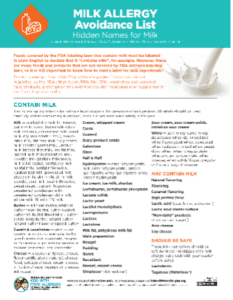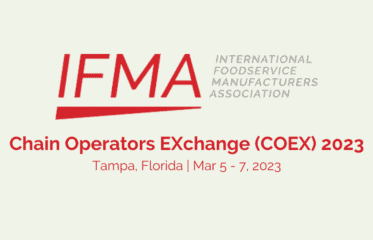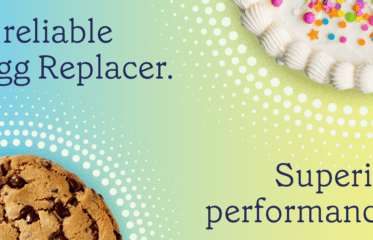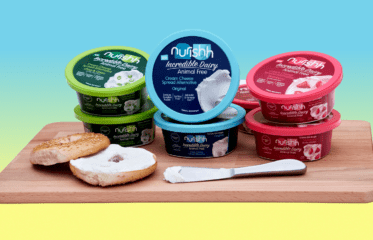Animal-Free Dairy: What to Know If You Have a Milk Allergy
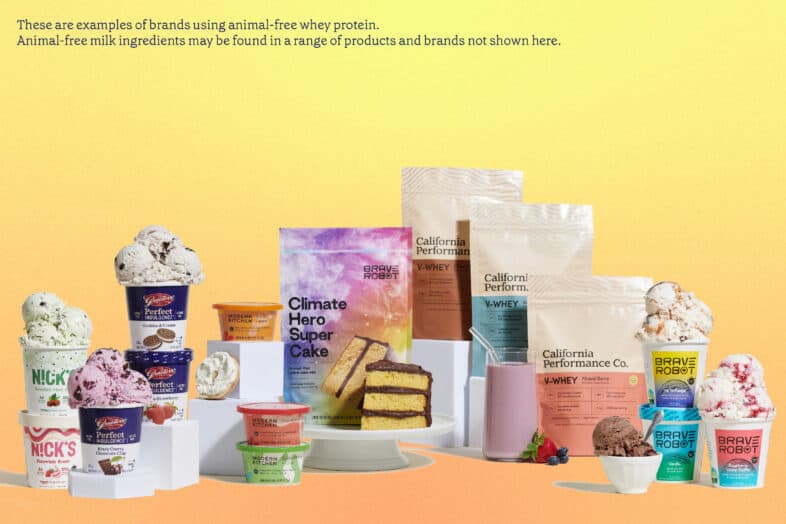
This blog was originally published by Kids With Food Allergies and is reprinted with permission. The original article can be found here. Kids With Food Allergies, the food allergy division of the Asthma and Allergy Foundation of America, is dedicated to saving lives and reducing the burden of food allergies through support, advocacy, education and research.
Perfect Day set out to create dairy products that are like cow’s milk but are better for our climate. Perfect Day’s product is just like whey, a protein found in milk. But it’s made without an actual cow.
Even though it doesn’t come from cow’s milk, people with a milk allergy can still have an allergic reaction to animal-free whey protein and should avoid it just as they would avoid cow’s milk.
Milk allergy is one of the most common food allergies, especially in children. About 1.9% of U.S. children are allergic to milk. Families that manage food allergies know milk and ingredients made from milk can be found in a lot of foods. It’s in many prepared foods and recipes. Restaurants use butter to grease pans or add extra flavor. People with a milk allergy have to be careful about reading labels and dining out. If you or your child has a milk allergy, remember to look for animal-free milk ingredients too.
How Animal-Free Dairy Will Appear on Food Labels
The Food Allergen Labeling and Consumer Protection Act (FALCPA) requires food companies to label their products clearly if they contain milk. Perfect Day’s animal-free milk protein is considered a milk product under FALCPA. This means if a food product contains animal-free milk protein, “milk” must be noted clearly on the ingredient label.
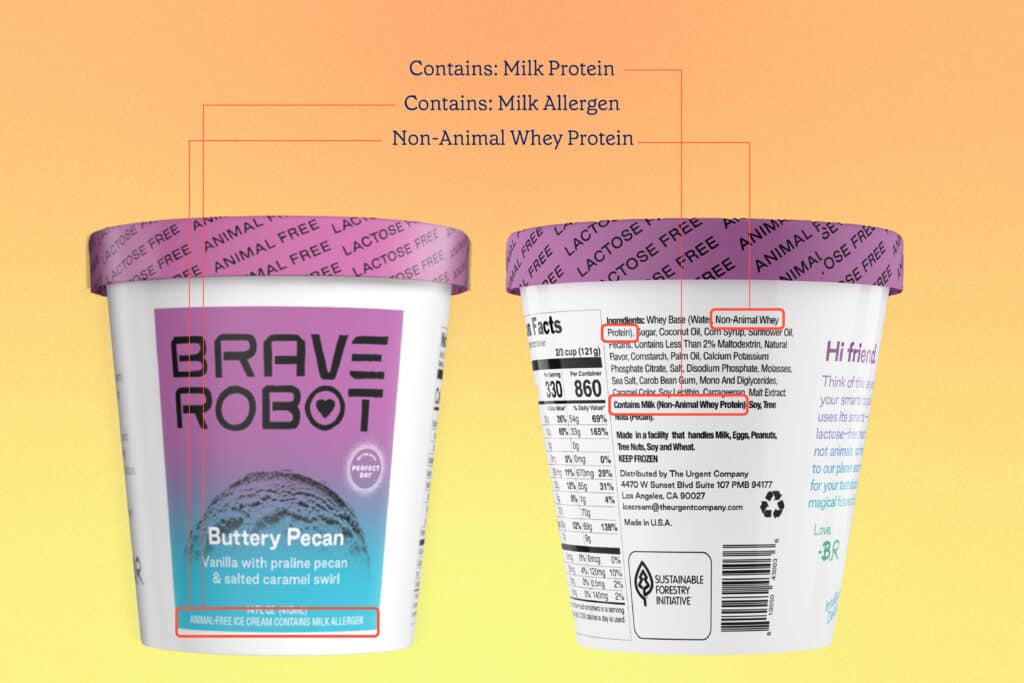
To protect people with a milk allergy, Perfect Day has asked food companies who use their products (like ice cream companies) to note the milk allergen on the front of the label. They want to help people with a milk allergy easily recognize foods made with their product.
If you or your child has a milk allergy, read labels and watch out for the terms “animal-free dairy” or “non-animal whey protein.”
5 Things to Know About Animal-Free Dairy Products If You Have a Milk Allergy
- People with a milk allergy can have allergic reactions to animal-free milk proteins and products made with them and should avoid these products.
- Watch food labels for the terms “animal-free dairy” or “non-animal whey protein” or dairy products that say “animal-free.”
- Products that are made with animal-free milk protein must clearly label for milk allergens under U.S. food label laws.
- Know that a food labeled as “vegan” may contain animal-free milk protein.
- Restaurants may serve vegan or plant-based foods that contain animal-free milk protein.
“We want to give as many cues to people as possible to let people with milk allergy know it contains milk protein,” says Nicki Briggs, Vice President of Corporate Communications for Perfect Day. “We will always prioritize consumer safety with allergen warnings.”
Perfect Day’s animal-free milk protein is now included in a number of food products. Some foods labeled as vegan may no longer be milk free if they contain animal-free milk protein. Some restaurants, colleges, hotels, and other places that serve food may serve foods that may be labeled as vegan but are made with animal-free milk protein. Keep this in mind when shopping for vegan items or eating out. See a full list of products that use Perfect Day animal-free milk protein.
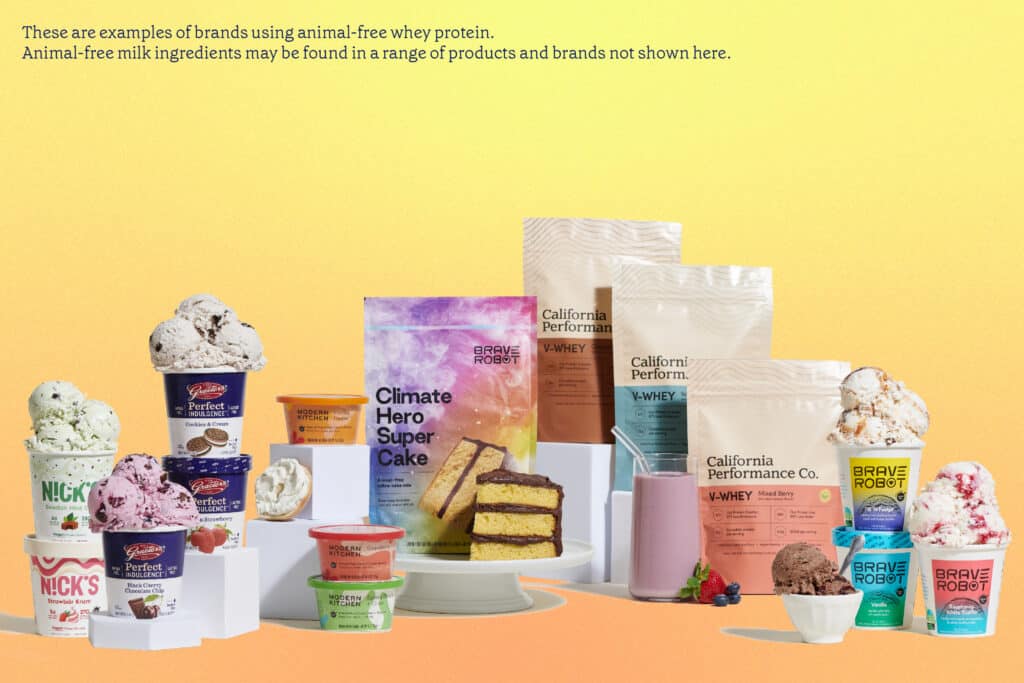
The Science Behind Perfect Day’s Animal-Free Milk
Perfect Day’s milk product is made using a method that’s been around for a few decades. It’s called precision fermentation. It’s the same process that is used to make insulin, vitamins, probiotics, and many cheeses.
Using biotechnology, Perfect Day gives microflora (tiny microorganisms) instructions that tell it how to make milk protein. The microflora convert sugar into milk proteins during the fermentation process. These milk proteins are just like those that come from a cow, but without the actual cow. Finally, everything but the pure milk protein is filtered out.
The first protein Perfect Day has made available to food companies is a whey protein that is nutritious, animal-free, cholesterol free, and lactose free. (Great news for people who are lactose intolerant, but not safe for people with milk allergy!)
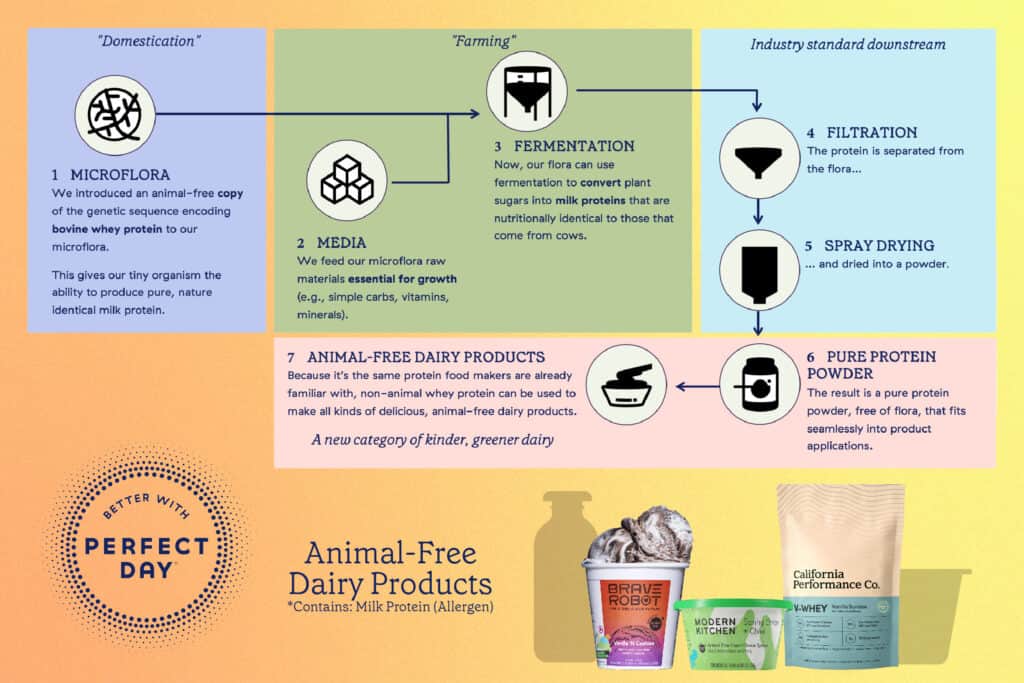
Better for the Planet
Animal agriculture (especially cattle) contributes to our growing climate crisis. Cows produce methane which has a warming potential 28 times that of carbon dioxide.1,2
Climate change leads to more air pollution, extreme weather, and hotter temperatures. All of these things can trigger asthma and allergy symptoms and even increase asthma rates.
Perfect Day’s climate-friendly solution may revolutionize how food is made. Perfect Day’s technology offers dairy products that are kinder to our planet. But it’s important for people with a milk allergy to know animal-free dairy products are not safe for people with a milk allergy. People with a milk allergy should avoid animal-free dairy products just like any other product that contains milk.
Do you or your child have a milk allergy?
Download, print, and share “A Guide to Managing Milk Allergy” from Kids With Food Allergies.
- Environmental Protection Agency. (n.d.). Understanding Global Warming Potentials. EPA. Retrieved November 17, 2021, from https://www.epa.gov/ghgemissio…l-warming-potentials.
- Environmental Protection Agency. (n.d.). Overview of Greenhouse Gases: Methane Emissions. EPA. Retrieved November 17, 2021, from https://www.epa.gov/ghgemissio…nhouse-gases#methane.
We’d love to hear your thoughts!
Your email address will not be shared.
